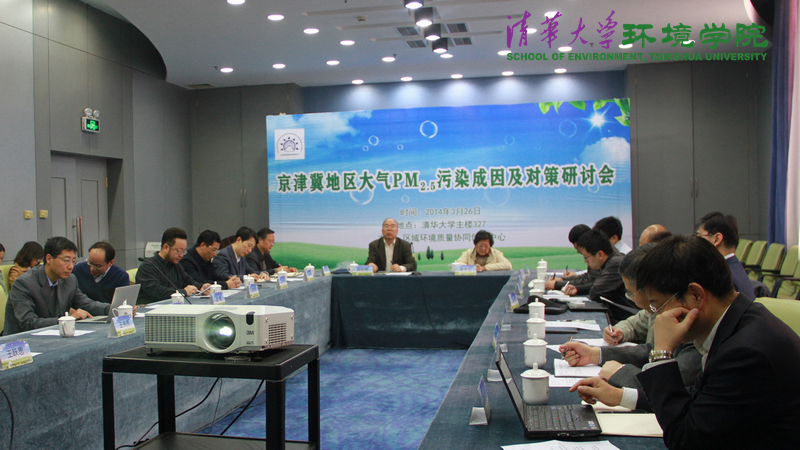Workshop on PM2.5 Pollution in Beijing-Tianjin-Hebei Region was held at Tsinghua University on March 26. The workshop was hosted by the Co-Innovation Center for Regional Environment Quality (CICREQ). SOE Prof. HAO Jiming and Prof. TANG Xiaoyan from Peking University co-presided over the seminar. About twenty people from the MEP, Ministry of Education, Ministry of Science and Technology, Beijing Environmental Protection Bureau, SOE, Peking University, Chinese Academy of Sciences and Zhejiang University attended the meeting.
The workshop aims to promote the communication of research results regarding the causes and control of PM2.5 pollution, which could be used as technical supports for the government to fight against the air pollution. A number of reports were made on the latest research on PM2.5 pollution.
“Co-Innovation Center for Regional Environment Quality is an institution jointly organized by Tsinghua University, Peking University, Nanjing University, Tongji University, Eco-Environmental Sciences Research Center of Chinese Academy of Sciences, and Chinese Research Academy of Environmental Sciences.”

During the brainstorm session, Prof. HAO Jiming emphasized that mere control of a single pollutant might have negative impact. He advocated the research on multi-pollutants control through the integration of their formation mechanisms. Prof. HE Kebin called for more exchanges on the current research to bring out efficient guides supporting the Air Pollution Prevention Action Plan issued by the State Council last year and making preparation for the next-phrase policies after 2017.
As a jointly organized institute, CICREQ is dedicated to the development of environment discipline, personnel cultivation, and scientific research. The main research areas include: 1) formation mechanism and interface physic-chemical process of particle pollutants, 2) impacts of regional complex pollution on health and ecology, 3) transportation and innocuous disposal of persistent pollutants.